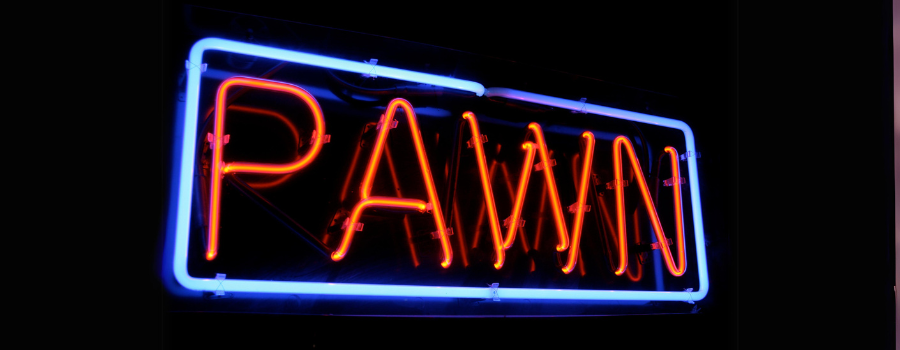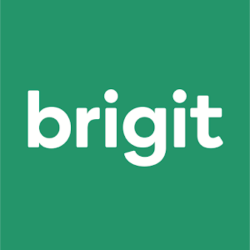Pawn Shop Loans Unlocked: Your Ultimate Guide to Quick Cash and Smart Borrowing

Hooked on Cash? Discover the Quick Fix of Pawn Shop Loans
In an instant, financial emergencies can disrupt our peace of mind, casting us into a sea of uncertainty. Whether it’s an unexpected bill, a sudden repair, or a personal crisis, the scramble for quick cash becomes inevitable. Yet, the quest for immediate funds often hits a wall – traditional lending routes like banks and credit unions demand time and a squeaky-clean credit history, leaving many out in the cold.
Enter the world of pawn shop loans, a beacon of hope for those seeking an immediate financial lifeline without the dread of credit checks. But as with any quick fix, it’s crucial to peel back the layers and understand what you’re diving into. This guide is your flashlight in the murky waters of pawn shop borrowing, revealing how these loans work, their benefits, and the pitfalls to avoid. We’ll also explore the ultimate dilemma: to pawn or to sell. Plus, for those moments when repayment seems like a distant dream, we uncover what happens next.
Armed with knowledge, you’ll navigate the pawn shop loan maze with confidence, ensuring your financial decision is not just quick but also smart and informed. Let’s demystify the process, weigh the options, and unlock the secrets to using pawn shop loans to your advantage.
The Secret World of Pawn Shop Loans Unveiled
Pawn shop loans often fly under the radar in the world of finance, yet they’re a cornerstone for many seeking immediate financial relief. At their core, these loans are a straightforward exchange – your valuable items for instant cash. But what makes them particularly appealing is the absence of credit checks, making them accessible to virtually anyone with something of value.
How Do Pawn Shop Loans Work?
A pawn shop loan is, in essence, a secured loan. The collateral? Anything from a vintage guitar and high-end electronics to jewelry. The process is simple: you bring in your item, and the pawnbroker appraises its value and offers you a loan based on a percentage of that value. Interest rates and loan terms can vary widely, so it’s critical to understand the specifics upfront.
One of the most compelling aspects of pawn shop loans is their speed. Unlike traditional bank loans, which can take days or weeks to process, pawn shop transactions can be completed in minutes. This immediacy can be a lifeline in times of financial distress.
However, the convenience of pawn shop loans comes with its considerations. The loan amount you receive is often significantly lower than the actual value of your item, and interest rates can be high. It’s this combination that necessitates a deeper dive into how pawn shop loans work, ensuring you’re making an informed decision when you need cash fast.
In the next section, we’ll step through the pawn shop loan process, providing you with a roadmap to navigate this quick-cash solution with your eyes wide open.
Unlocking Cash with Your Valuables: A Step-By-Step Guide
- Select Your Collateral: Identify a valuable item you own, such as jewelry, electronics, or musical instruments, that you’re willing to use as collateral for a loan.
- Find a Reputable Pawn Shop: Research to choose a pawn shop known for fair dealings and cheerful customer reviews to ensure you get the best possible terms.
- Get Your Item Appraised: Present your item for appraisal at the pawn shop. The loan offer will be based on the item’s current market value, condition, and the pawn shop’s ability to sell the item if necessary.
- Understand the Loan Terms: Carefully review the loan amount, interest rate, fees, and repayment period (usually 30 to 90 days) offered by the pawnbroker. Make sure you fully understand and agree to these terms before proceeding.
- Receive Cash: Upon agreement, you’ll provide the item as collateral and receive the loan amount in cash. Ensure you receive a pawn ticket or receipt that details your loan terms and is required to reclaim your item later.
- Repay the Loan: Repay the loan amount plus any accrued interest and fees by the end of the loan term to reclaim your collateral. If you’re unable to repay in time, inquire about the possibility of extending or renewing the loan.
- Non-Repayment Consequences: If repayment is not possible, the pawn shop retains the right to sell your item. However, this transaction does not impact your credit score, as pawn loans do not require credit checks.
This streamlined guide is designed with you in mind, offering a clear path through the process of securing and managing a pawn shop loan. By understanding each step, you’re empowered to make choices that align with your financial needs and circumstances. Whether you’re navigating a tight financial spot or seeking a quick cash solution, this guide aims to equip you with the knowledge to make informed and beneficial decisions.
Why Pawn Shop Loans Could Be Your Financial Knight in Shining Armor
When cash flow problems arise, pawn shop loans can be a swift and efficient solution, offering several advantages that make them an attractive option for many. Here’s why considering a pawn shop loan might just be the financial rescue you need:
1. Speed: One of the most significant benefits of pawn shop loans is the rapid access to cash. Unlike traditional bank loans that take days or weeks to process, pawn shop transactions can be completed within minutes, providing immediate financial relief.
2. No Credit Checks: Pawn shop loans do not require a credit check. This means your credit score won’t be impacted by applying for a loan, and you won’t be denied based on your credit history. This feature is particularly beneficial for those with less-than-perfect credit or those who wish to avoid inquiries that could lower their credit scores.
3. Flexibility: The loan amount is based on the value of your collateral, not your creditworthiness or income. This can provide more flexibility in the amount you can borrow, especially if you have valuable items but are limited by a low credit score or lack of verifiable income.
4. Confidentiality: Pawn shop loans offer a high level of privacy. There’s no need to disclose personal financial information or reasons for needing the loan, which can be a relief for those who prefer to keep their financial matters private.
5. Simple Repayment: Repaying a pawn shop loan is straightforward. If you can’t repay the loan by the end of the term, you can choose to surrender the collateral without the worry of debt collectors or negative marks on your credit report. For many, this clear-cut outcome removes the anxiety of potentially spiraling into further debt.
Pawn shop loans aren’t without their drawbacks, such as potentially high interest rates and the risk of losing your collateral. However, for those in need of quick cash without the hassle of credit checks or lengthy approval processes, they offer a viable and immediate solution. Understanding these benefits can help you decide if a pawn shop loan is the right choice for your financial situation.
Pawn Shop Loans: Weighing the Pros and Cons
Pawn shop loans can be a convenient solution for immediate financial needs, offering both benefits and drawbacks. Here’s a closer look at what to consider:
Advantages of Pawn Shop Loans:
- Speed: Quick access to cash, often within minutes, is a primary advantage for urgent financial needs.
- No Credit Checks: These loans are accessible without a credit check, making them available to those with poor or no credit history.
- Flexibility: The loan amount is based on the collateral’s value, not the borrower’s creditworthiness or income.
- Confidentiality: The process is private, requiring no disclosure of financial details or reasons for the loan.
- Simple Repayment: If unable to repay, the borrower can forfeit the collateral without further debt consequences or impacts on credit score.
Considerations and Risks:
- Higher Costs: Pawn shop loans can carry higher interest rates and fees compared to traditional lending options.
- Risk of Losing Collateral: Failure to repay the loan results in losing the pawned item, which could have both financial and sentimental value.
- Short Repayment Terms: Typically, loans have a short repayment duration, potentially adding pressure to repay quickly.
- Potential for a Debt Cycle: There’s a risk of entering a cycle of debt if continually relying on pawn loans for financial needs.
- Loan Amount Limitations: The loan amount is usually much lower than the actual retail value of the pawned item, limiting the cash available to the borrower.
By understanding the full spectrum of pros and cons, borrowers can navigate pawn shop loans more wisely, ensuring these financial tools serve their needs without unforeseen drawbacks.
Does Pawning Hurt Your Credit? The Surprising Truth
Pawn shop loans offer a unique advantage for those concerned about their credit scores—they don’t require a credit check, nor do they impact your credit score. This feature ensures that applying for a pawn shop loan won’t lower your credit score, as there’s no inquiry reported to credit bureaus.
The loan is secured with collateral, meaning if you can’t repay, the pawn shop simply keeps the item you pawned. This setup avoids the negative impact on your credit history that can come from other types of loans. However, while your credit score remains unaffected, it’s crucial to consider the potential loss of your pawned item. This loss is the main risk of using pawn shop loans, highlighting the need to balance the immediate financial benefit against your collateral’s sentimental or monetary value.
Is It Better to Sell or Get a Loan at a Pawn Shop?
Selling to a Pawn Shop:
Selling items to a pawn shop offers immediate cash without the future obligation of repayment, making it an appealing option for those in need of quick funds. This approach often results in a higher cash payout compared to the loan value of the same items, providing a straightforward financial boost without concerns about interest or fees.
Opting for a Loan:
Choosing a loan instead allows you to retain ownership of your items, offering a temporary financial solution with the opportunity to reclaim your belongings once the loan is repaid. This option is especially suitable for items of sentimental value or when you anticipate being able to cover the loan plus interest in the near future.
Key Considerations:
The choice between selling and loaning hinges on several factors, including the immediate need for cash, the sentimental value of the items, and your financial stability to repay a loan. Selling provides a no-strings-attached way to address financial needs, while loans offer a way to retain your valuables potentially. Assessing the importance of the item, the feasibility of repaying a loan, and the urgency of your financial needs will help guide the decision that best suits your situation.
What Happens If You Can’t Pay Back a Pawn Loan?
If you can’t repay a pawn shop loan, the shop can sell your collateral. This won’t affect your credit score, as pawn loans aren’t reported to credit bureaus.
Pawn shops may allow you to extend or renew the loan by paying the accrued interest, but this increases the overall cost due to additional interest and fees.
Before opting for a pawn loan, consider your ability to repay and the value of the item to avoid losing something important. Carefully review the loan terms and assess your financial situation.
Navigating Your Financial Options: Loans vs. Income Strategies
When faced with the need for quick financial assistance, it’s crucial to explore and understand the spectrum of options available. These can be broadly divided into immediate financial solutions through loans and strategies to increase income without incurring debt.
Immediate Financial Solutions:
- Payday Loans: Immediate, but often come with high costs.
- Personal Loans: Lower interest for those with good credit, requiring proof of repayment ability.
- Credit Card Cash Advances: Accessible but expensive in terms of interest and fees.
- Title Loans: Quick cash with your vehicle at stake.
- Peer-to-Peer Loans: Flexible, community-based lending with varying rates.
- Home Equity Loans: Lower interest rates and higher loan amounts based on home equity. Require a longer approval process and carry the risk of foreclosure.
- HELOC (Home Equity Line of Credit): Offers a flexible funding stream with variable interest rates, suited for continuous financial needs.
- 401(k) Loans: Borrow from your retirement savings with no credit check, lower rates, and no taxes if repaid promptly. Risks include potential impact on retirement funds and penalties for non-repayment.
- Getting a New Credit Card: Beneficial for 0% introductory interest offers on purchases or balance transfers, providing a cost-effective way to manage short-term expenses. It is important to consider the regular interest rate post-introductory period and the potential impact on credit scores.
 iCash Loans | Get a Loan Today
»
|
 Brigit | Build Your Credit and Your Savings
»
|
 BadCreditLoans.com | Quick Loans up to $10,000
»
|
 Wells Fargo Reflect® | 0% APR for 21months (Credit Score 670+)
»
|
Income Strategies Without Debt:
- Borrowing from Family and Friends: Personal, potentially interest-free loans with relationship considerations.
- Selling Personal Items: A slower, effort-intensive option that converts belongings into cash.
- Seeking Community Assistance: Non-repayable support from charities or government programs for those in financial distress.
- Exploring Side Gigs: Earning extra income through part-time work or freelancing.
Understanding the nature of your financial needs and your ability to meet repayment obligations will help you choose the most appropriate path. Whether it’s through a loan that matches your repayment capacity or a strategy to enhance your income without the burden of debt, careful consideration will safeguard your financial health while addressing your immediate needs.
Smart Borrowing: Master the Art of Pawn Shop Loans
Navigating the waters of pawn shop loans requires a keen understanding of both the process and the strategies to ensure you’re making the most informed decision possible. Here’s how you can approach pawn shop loans smartly, safeguarding your financial interests while meeting your immediate cash needs:
- Assess the Need and Value: Ensure the item’s cash value outweighs its sentimental or financial importance to you.
- Know the Terms: Fully understand interest rates, fees, and repayment terms before committing.
- Negotiate: Don’t hesitate to negotiate for better loan terms or amounts.
- Have a Repayment Plan: Plan how you’ll repay the loan and interest before taking it.
- Explore Alternatives: Consider other financial options before opting for a pawn loan.
- Be Ready to Walk Away: Don’t proceed with the loan if terms aren’t favorable or repayment is uncertain.
Conclusion: Navigating Financial Options Beyond Pawn Shop Loans
Understanding pawn shop loans is crucial, but it’s equally important to consider all your financial options carefully. Before deciding, thoroughly evaluate the loan’s terms, including interest rates and repayment schedules, and ensure you have a solid plan for repayment.
If you’re unsure about the best path forward or if pawn shop loans seem like your only option, it might be time to consult with a financial advisor. A professional can offer personalized advice and help you explore alternatives that align with your financial goals and situation.
Remember, making informed financial decisions is key to maintaining your financial health. If a pawn shop loan doesn’t fit your needs, contact a financial advisor today. With their guidance, you can find a solution that supports your journey to financial stability and success.
- HELOC Loans Unlocked: How Do They Work?
- Borrow from Retirement With A 401k Loan: A Comprehensive Guide
- Title Loans Explored: Your Guide to Borrowing Against Your Car
- Mastering Credit Cards: Types, Benefits, and Strategic Use
- Credit Card Cash Advances: Emergency Funds When You Need Them Most
- Home Equity Loans Explained: Unlocking Your Home’s Financial Power
- Pawn Shop Loans Unlocked: Your Ultimate Guide to Quick Cash and Smart Borrowing
- Peer-to-Peer Lending for Bad Credit: Unlocking Financial Opportunities
- Drive Away Happy: Your Complete Guide to Auto Loans and Buying a Car
- Unlock Your Dream Home: A Stress-Free Guide to Understanding Mortgages



